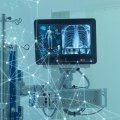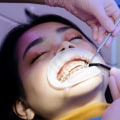Medical imaging is a valuable tool in diagnosis, but it is important to be aware of the risks associated with it. Exposure to radiation from medical sources has increased from 15% in the early 1980s to 50% today, and this can lead to an increased chance of developing cancer later in life. Tissue effects, such as cataracts, skin redness, and hair loss, can also occur at relatively high levels of radiation exposure. Imaging tests provide an image of the inside of the entire body or part of it, and help doctors diagnose a disorder, determine how serious the disorder is, and monitor people afterwards.
However, exposure to radiation from the environment (from cosmic radiation and natural isotopes) can be relatively high, especially at high altitudes. When traveling by plane, exposure to ambient radiation increases. Large doses of ionizing radiation can cause acute illness by reducing blood cell production and damaging them. The atomic explosion is not a perfect model for exposure to medical radiation, because the bomb released all of its radiation at once, while the doses of medical imaging are smaller and spread over time. Problems can also arise from incorrectly changing the infusion rates of intravenous medications after procedures or improper programming and operation of intravenous pumps; and incorrect dosing of sedatives, among others. It is important to keep an imaging medical record to record your own history of diagnostic imaging tests and share it with your healthcare providers. If you need a CT scan or a nuclear scan to treat or diagnose a medical condition, the benefits often outweigh the risks.
However, if there is reason to believe that an X-ray, CT scan, or nuclear scan (such as a positron emission tomography) is the best way to detect cancer or other diseases, the person will most likely get more help than the small dose of radiation. Radiation experts believe that if imaging tests increase the risk of cancer, the increase in risk is likely to be very small. When children require diagnostic tests, parents should talk to their doctor about the risks and about the possible use of tests that don't require radiation. The benefits of these tests, when appropriate, far outweigh any radiation-associated cancer risk, and the risk of a single CT scan or nuclear imaging test is quite small. It is important to be aware of all potential risks associated with medical imaging so that you can make an informed decision about whether or not it is right for you.






